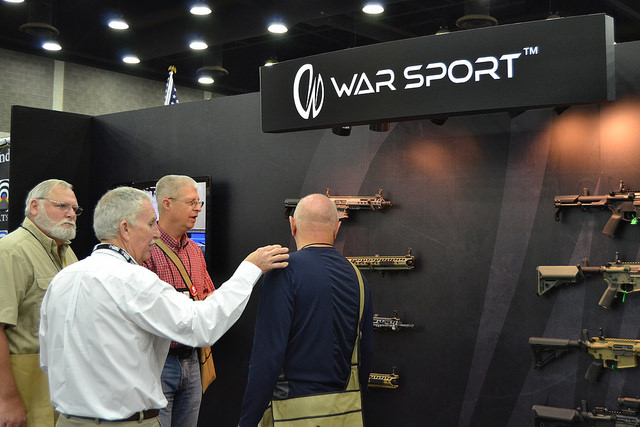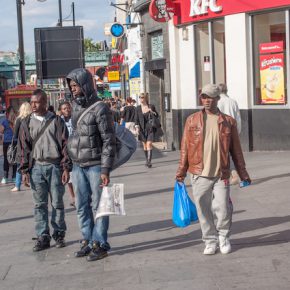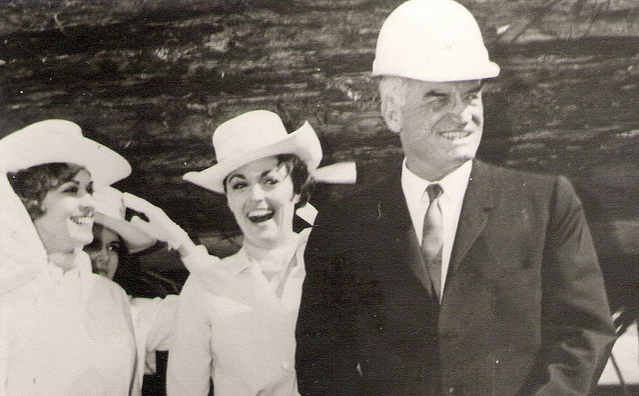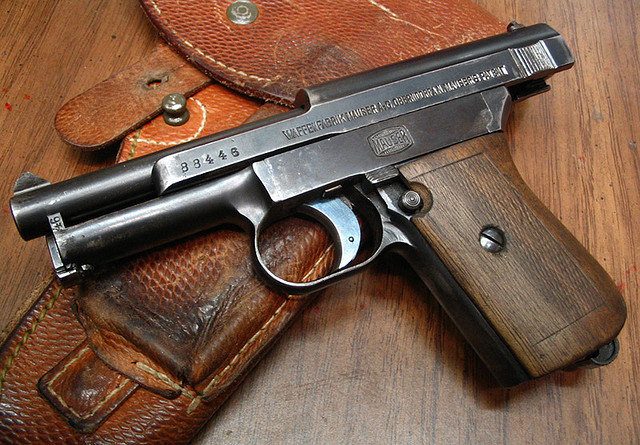There’s a lot that could be said about the murders of five policemen in Dallas on Thursday night. It all will be said eventually, probably at the top of people’s lungs. As usual when this kind of thing happens, the hot takes started flying before the bodies were cold, and there’s little point in trying to sort through the particulars until the media environment de-stresses a little (and we have a better idea of what the particulars are).
I have the following to offer, which I would like to preface by saying that there are a couple of points of speculation (or at least not the firmest foundation) with which I will lead in. I have no idea particular model of weapon was used in this atrocity, but it was clearly some sort of semiautomatic rifle. I’m going to guess here that it was legally purchased. The shooter was, if reports are to be believed, a veteran of a combat tour in Afghanistan with no criminal record. It is therefore unlikely that that he would have been prevented from acquiring any sort of otherwise legal firearm even under the new (and seriously misguided) rules being touted by congressional Democrats.
Why is this important? Possibly for a lot of reasons, but I’ll stick to this one for the moment. One often hears proponents of gun rights, from the NRA on down the line, propounding the theory that if more people went around armed we’d all be safer. Indeed, this is the thing that almost automatically emits from those quarters in the wake of any mass shooting. The underlying premise of this assertion (and assertion is all it is since there can be no conclusive proof) is a scenario like the one in A Christmas Story in which Ralphie employs his Red Ryder air rifle to rescue his family from the fiendish clutches of Black Bart and his gang.
This armed hero imaginary suffuses the rhetoric of gun rights advocates, and brooks no contradiction: if you were trapped with an active shooter, wouldn’t you want to have a firearm of your own? Well yes, but it’s a lot more complicated than that. For simplicity’s sake I’ve tried to break down the ways into a list:
1. The proportion of cases in which one is trapped with an active shooter, versus the total number of shootings in the United States is vanishingly small (this article contains some relevant statistics).
2. Having a gun doesn’t make you bulletproof. It does not protect you from being shot while you are looking the other direction, or by someone shooting at someone else, or through a wall, or by someone hiding a long way away. In the hands of a properly trained shooter with the right load, an AR15 has an effective range greater than 600 meters.
3. People who are armed, even if they are highly trained, are still very much susceptible to being killed by someone else witha gun who is determined to do so. If we take the casualty figures from Dallas as they are currently known, there were 10 police officers and two civilians shot. 80% of the people shot were themselves armed and highly trained, and half of those were fatalities. Ultimately, even given the fact that they were armed and well-trained, the police didn’t resolve the problem with their guns but with explosives delivered by a repurposed bomb disposal robot.
4. There are other things in the world that are lethal, like cars for instance. But you’re mostly pretty safe from cars in the built environment. Their ability to kill you inside of most buildings is limited, and they have to basically be right next to you to do it. A bullet does too, but the person firing it doesn’t, and said bullet gets to you much faster than a car and quite often with no warning whatsoever. Also, cars are, at least for now, fundamental to making our economy work. Guns aren’t.
5. There is an idea, made more or less explicit by the right wing anarchist element among the gun folks, that everyone having guns would make everyone equal. The general spread of firearms would result in the growth of a society of perfect individualism in which such malign forces as the gummint wouldn’t be able to force you to give up your hard won coin (probably for the support of black welfare queens anyway). But all this would do would be to make society completely ungovernable. What would result would a state of generalized war like the one described by Thomas Hobbes in Leviathan, where he wrote:
To this war of every man against every man, this also is consequent; that nothing can be unjust. The notions of right and wrong, justice and injustice, have there no place. Where there is no common power, there is no law; where no law, no injustice. Force and fraud are in war the two cardinal virtues. Justice and injustice are none of the faculties neither of the body nor mind. If they were, they might be in a man that were alone in the world, as well as his senses and passions. They are qualities that relate to men in society, not in solitude. It is consequent also to the same condition that there be no propriety, no dominion, no mine and thine distinct; but only that to be every man’s that he can get, and for so long as he can keep it. And thus much for the ill condition which man by mere nature is actually placed in; though with a possibility to come out of it, consisting partly in the passions, partly in his reason.
6. You may not be comfortable with the government reserving to itself the legitimate use of violence, but the alternatives are much worse and evidence of this can be gleaned from social breakdowns from Somalia to post-Katrina New Orleans. Already at our current level of firearms dissemination the police are very edgy, as Philando Castile discovered in the moment of his demise in St. Paul the other night. Even adjusting for the fact that different groups are policed differently (whether your firearm is legal or not is in practice rather less important than whether you are white or not), having everybody armed makes society effectively unpoliceable, a that is a recipe for vigilantism and the lynch law.
7. Proponents of this solution seem to think that what would result would be a sort of human scale version of J.R.R. Tolkien’s Shire (minus the hobbits but including a full measure of individualistic self-reliance). As far as I can see this is really a recipe a human life that is (to quote Hobbes) “solitary, poor, nasty, brutish, and short.”
In the days and weeks to come we will, I am certain, hear a lot of the same rhetoric. Democrats will propose the same solutions that don’t fix the problem but involve greater surveillance of Muslims. Republicans will bang on about the Second Amendment without either seriously insisting on the formation of well-ordered militias or considering the origins of this part of the U.S. Constitution in the need for southerners to police their slaves. But the fact remains that the logic of the gun advocates position leads, inexorably to social collapse and anarchy (and not the good kind). Dallas could be taken to mean a lot of things, but at the very least it shows that vanity of the gun rights utopia.
Photograph courtesy of David Yamane. Published under a Creative Commons license.





